
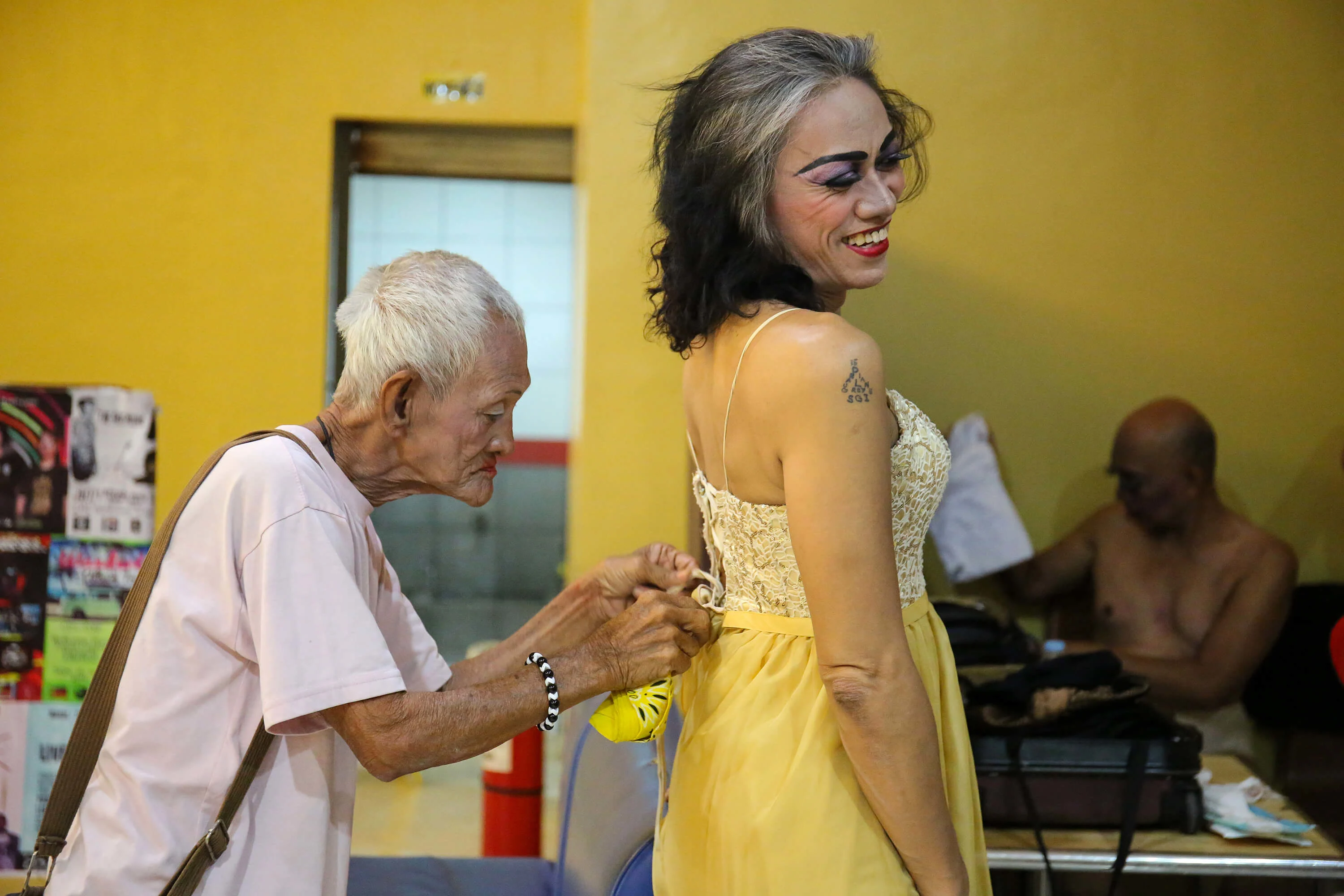
The Golden Gays is a charity in the Philippines that supports elderly gay men. It provides help with housing, HIV and other health awareness programs, and workshops to teach the men new skills so they can make a living. As part of their fundraising efforts, the Golden Gays perform drag shows where, for a few hours, they feel young again.
Lynzy Billing went to hear their stories, and photograph them in all their glory.
Beaded gowns and jewelled stilettos are slung over plastic chairs at the back of a rundown, underground mall in Pasay, a city just south of Manila. The tables are littered with false eyelashes, wigs and silicone breasts.

The group of elderly men donning makeup and stockings catch the gaze of passers-by but they don’t notice the attention. The Golden Gays are focused on preparing for show time.
Sometimes they perform for 50 people and sometimes just ten. But the size of the crowd doesn’t matter, The Golden Gays will always give the show of their lives.
This may all seem out of place in a devoutly Roman Catholic country like the Philippines. It has a reasonably tolerant attitude to homosexuality, but it’s by no means free from prejudice and discrimination . Legal protections are lacking and the nation’s weak social safety net fails older gay people in particular, who can find themselves isolated and rejected by their families.
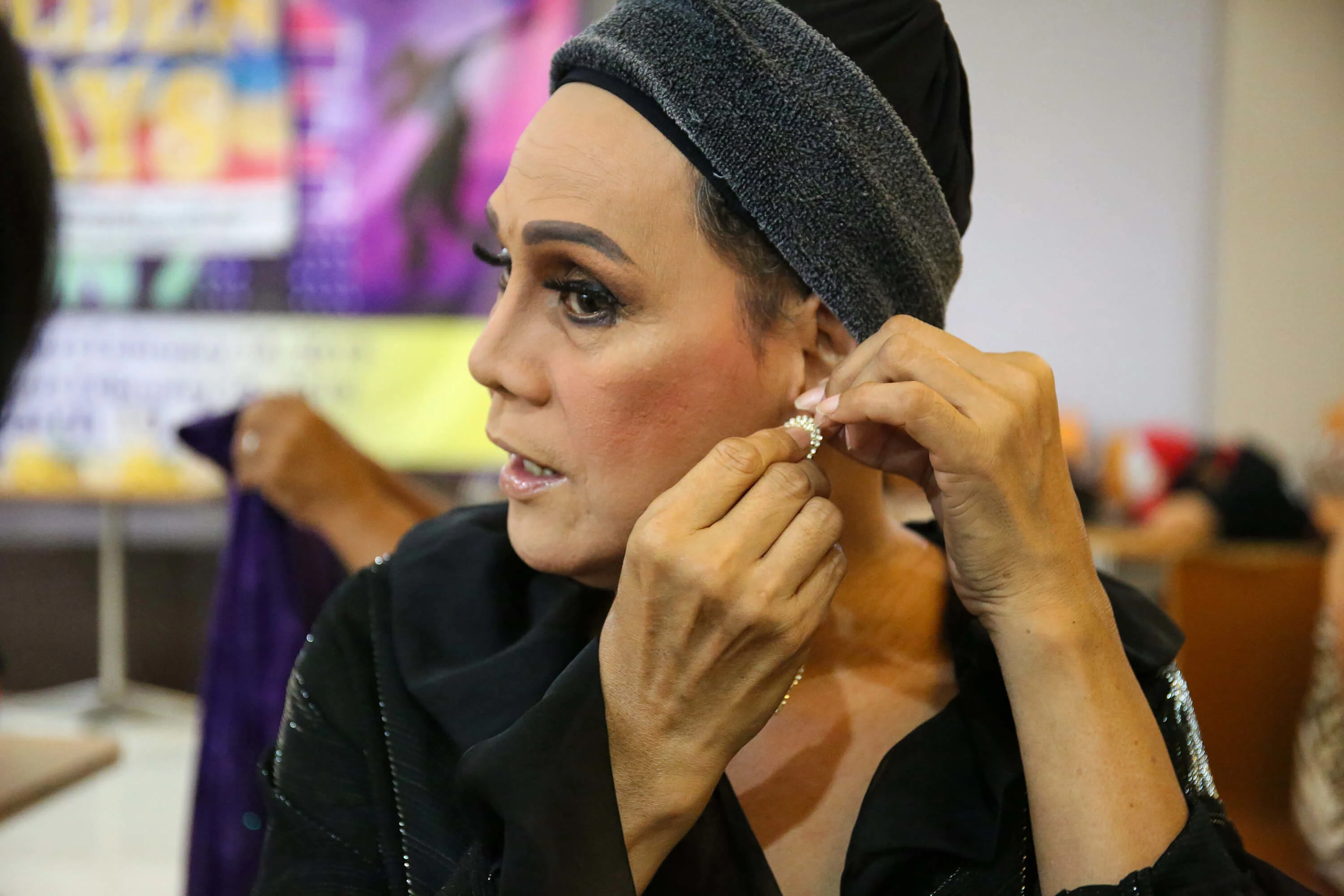
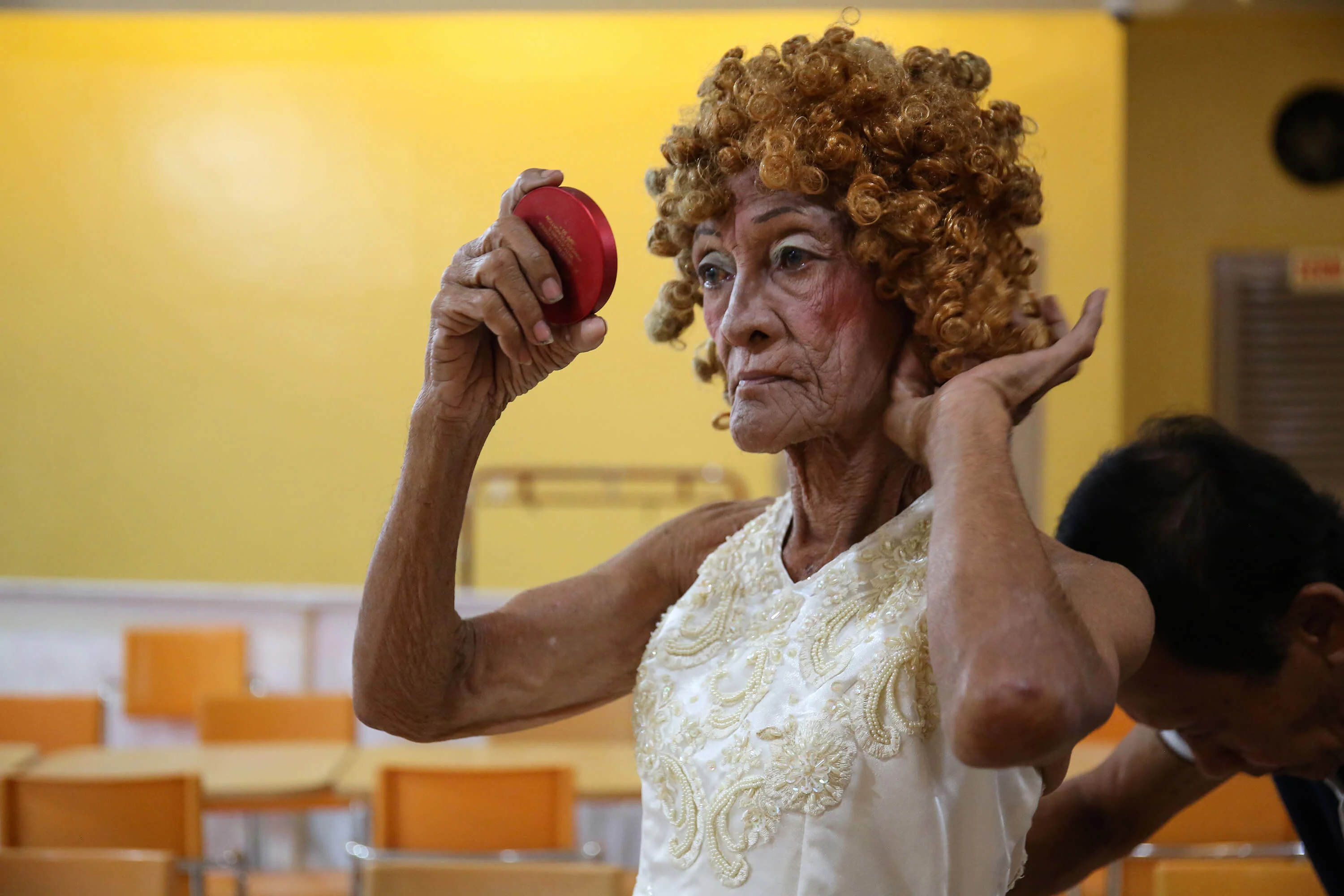
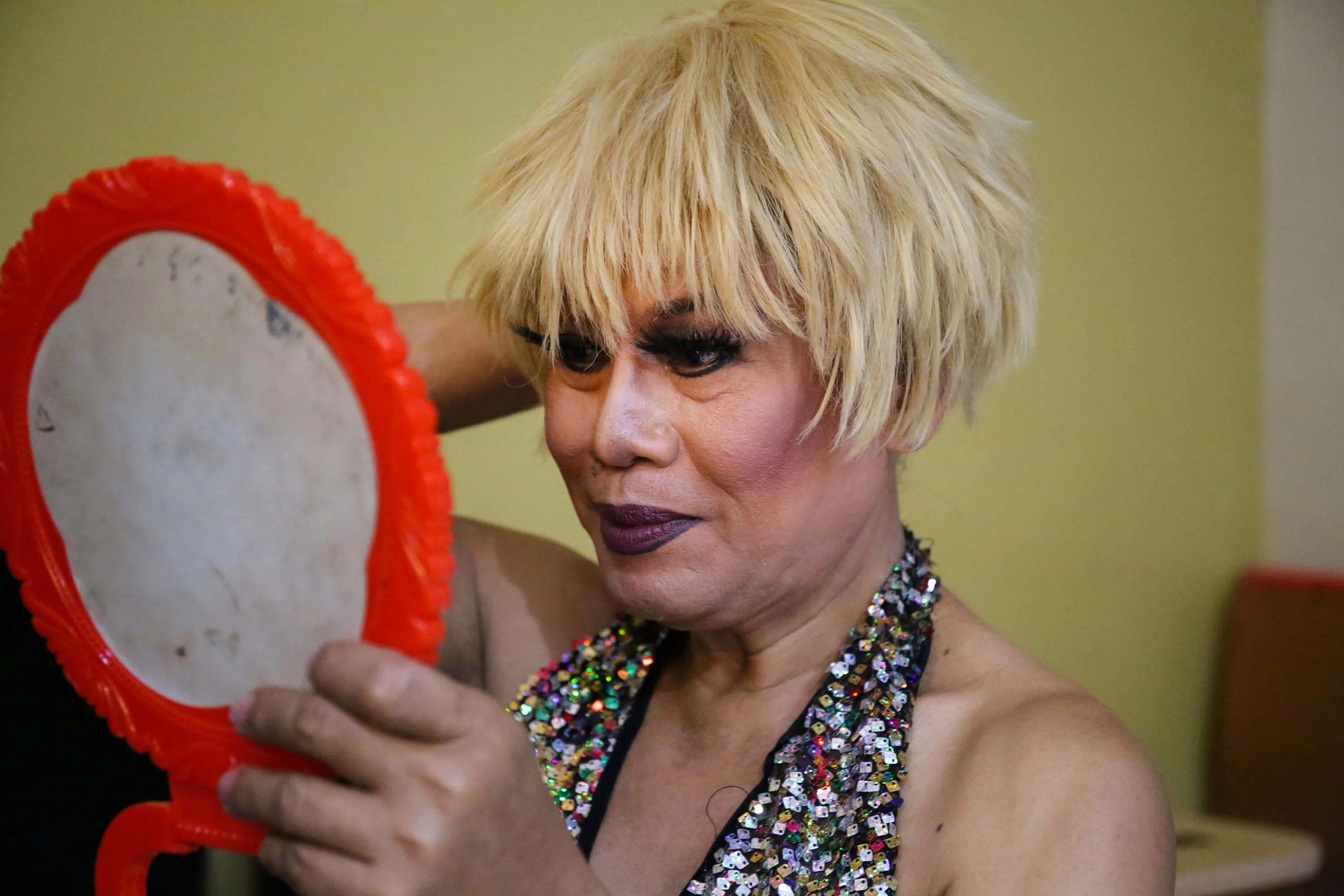
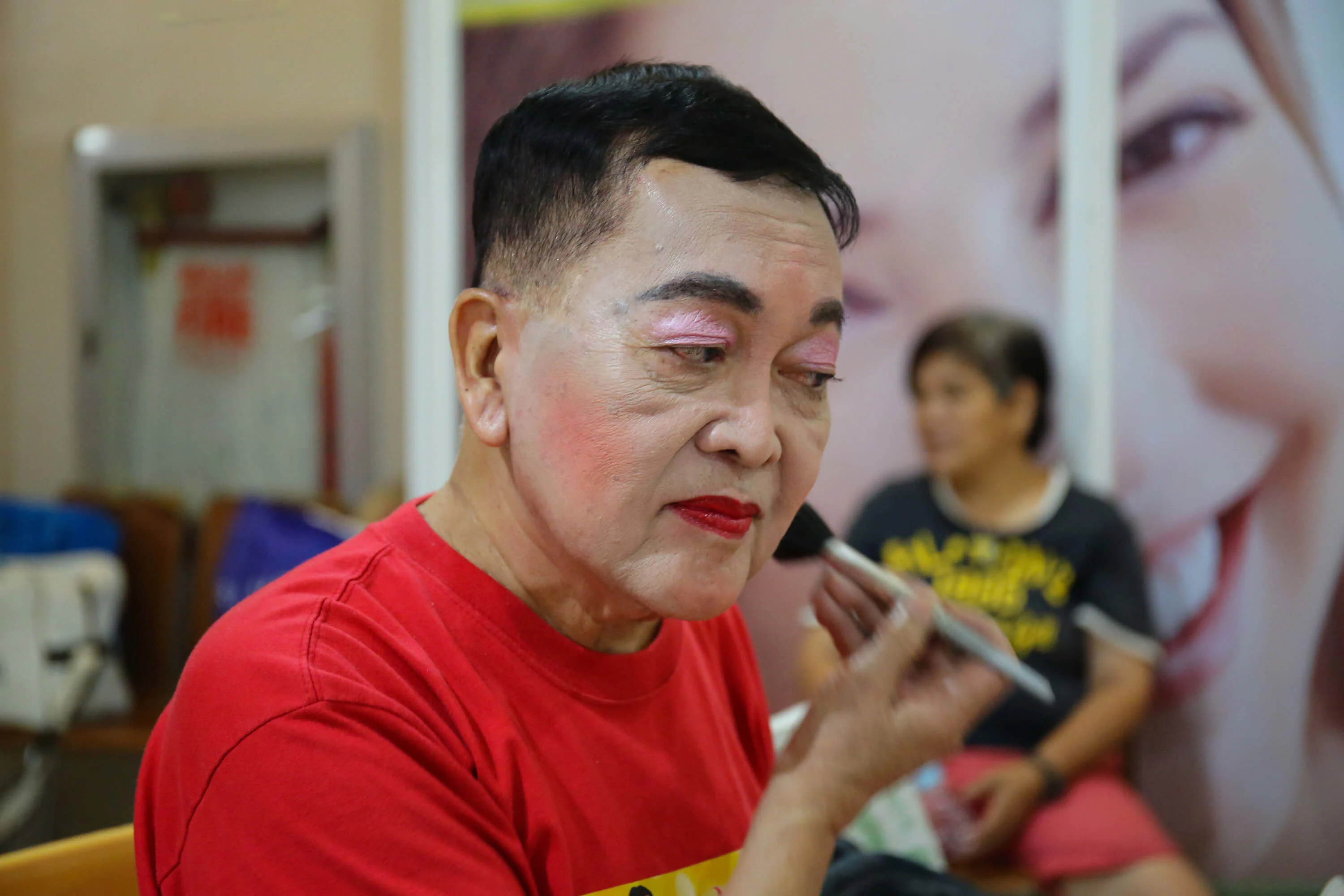
I live alone, but you’re never really alone because you have friends in the Golden Gays.
In 1975, activist Justo Justo set up The Home for the Golden Gays, opening up a boarding house for homeless or poor older gay men. Justo was a pioneer of LGBTQI+ rights in the country and spoke out about the HIV crisis. In the local gay community, he was an icon.
The day after Justo died in 2012, The Home for the Golden Gays was closed down and the group’s 48 members were scattered across the city. Some are now living with relatives but many are sleeping rough, lacking financial or family support to help them in their old age (an estimated 1.3 million senior citizens live in poverty in the Philippines).
The Golden Gays charity survives through community outreach programs, donations and the money they raise through their drag shows. In exchange for cash or food, the lolas (or grannies) get dolled up to sing and dance for the always-adoring audiences. Some also work odd jobs in beauty salons, as street sweepers, dishwashers and cigarette vendors.
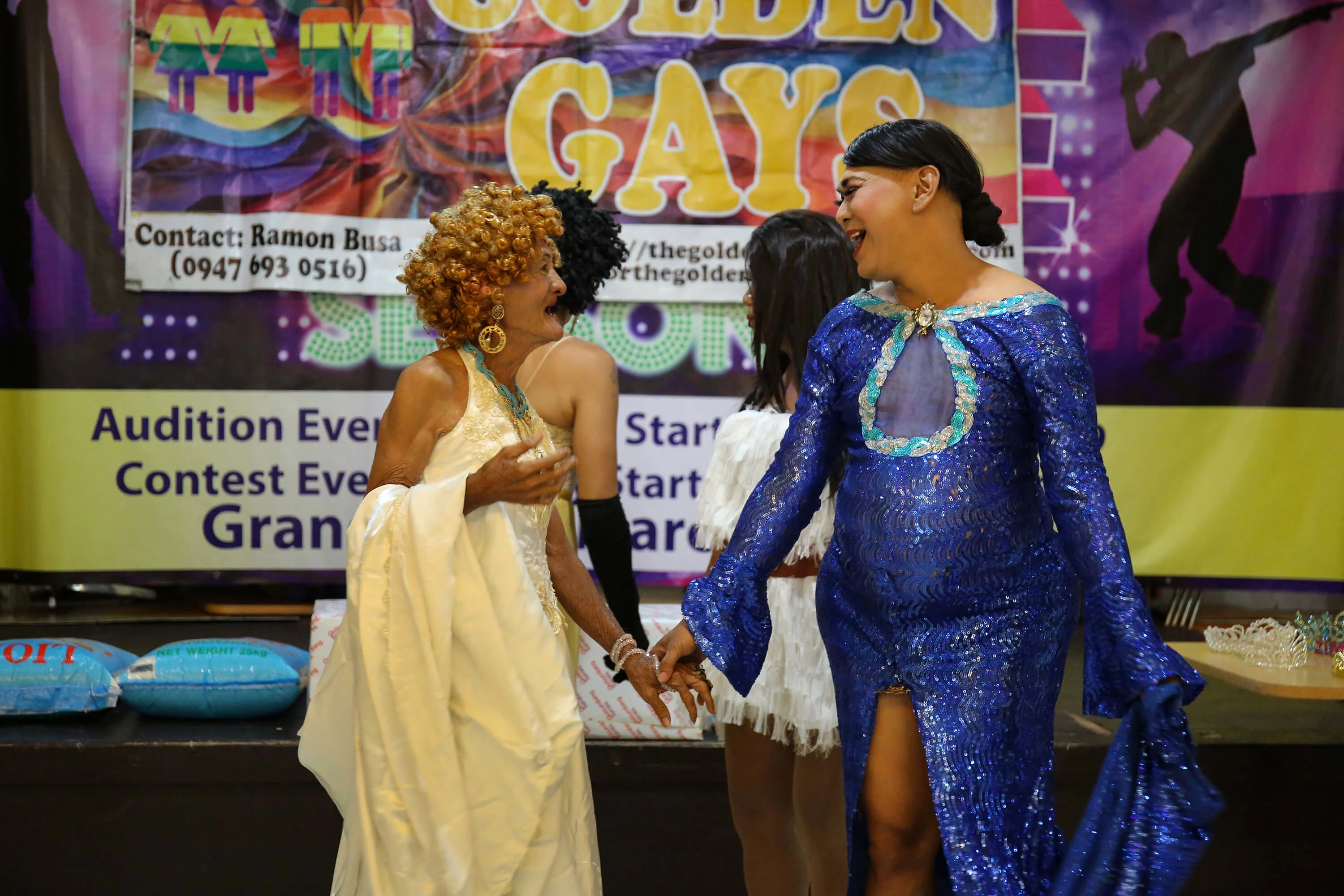
“People tolerate gay men as long as they have money or can earn a living,” says 83-year-old Al Enriquez, also known as Carmen Dela Rue. “It’s difficult to deal with the stigma and loneliness of being elderly, poor and gay. But when we are all together, we can support each other.”
There is no pension provided to old people in the Philippines, but the Golden Gays remain resilient. Their goal is to keep working, keep performing and once again find a permanent home that will serve as a place of refuge, not only for its current members but for others in need.
For now, the 48 remaining members take comfort in booking drag shows – both for the food or money they receive, and for the chance to express their sexuality to applause, rather than ostracism. Together, they have found a sense of belonging.
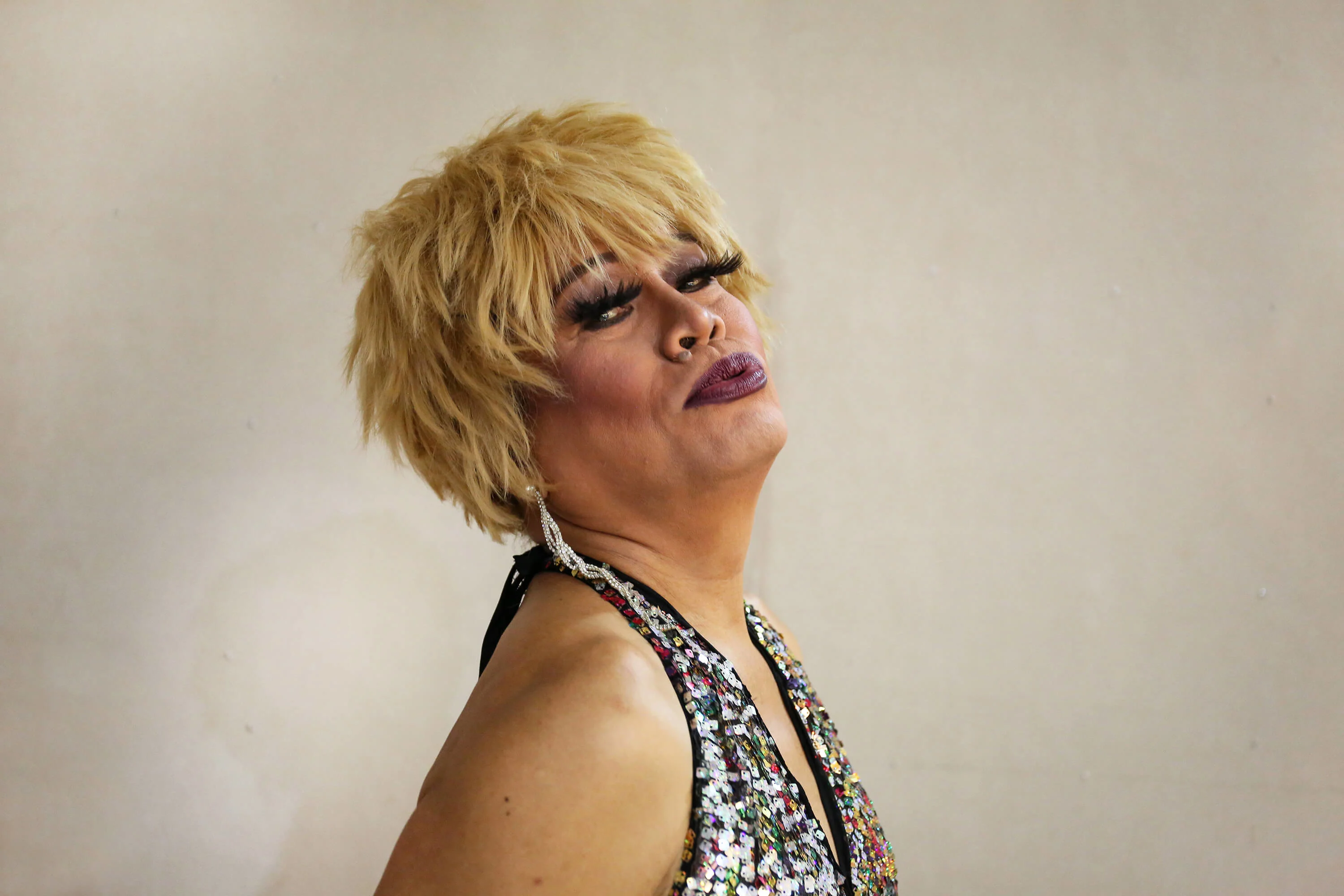
Alfie “Melon” Moreno
Alfie “Melon” Moreno, 61, was an entertainer in Japan for eight years. He came back to the Philippines in 2007 and works as a dancer, comedian and impersonator – “three-in-one!”
I was ten-years-old when I recognized my identity. During the early 1960s and 70s, the Philippines was a closed society. It was very strict. My siblings were all girls. I was the only boy, so my father did not accept me for what I am.
I left my family at the age of 16 and started working as a janitor. Right now, I work as an entertainer at a bar in Dimasalang on Fridays and Saturdays. During the week I am studying housekeeping. I try to study new skills because you never stop learning.
It makes me happy that we have the opportunity to get together, dress up and perform. Every time I perform, I get absorbed in the character, for example Tina Turner because I impersonate her.
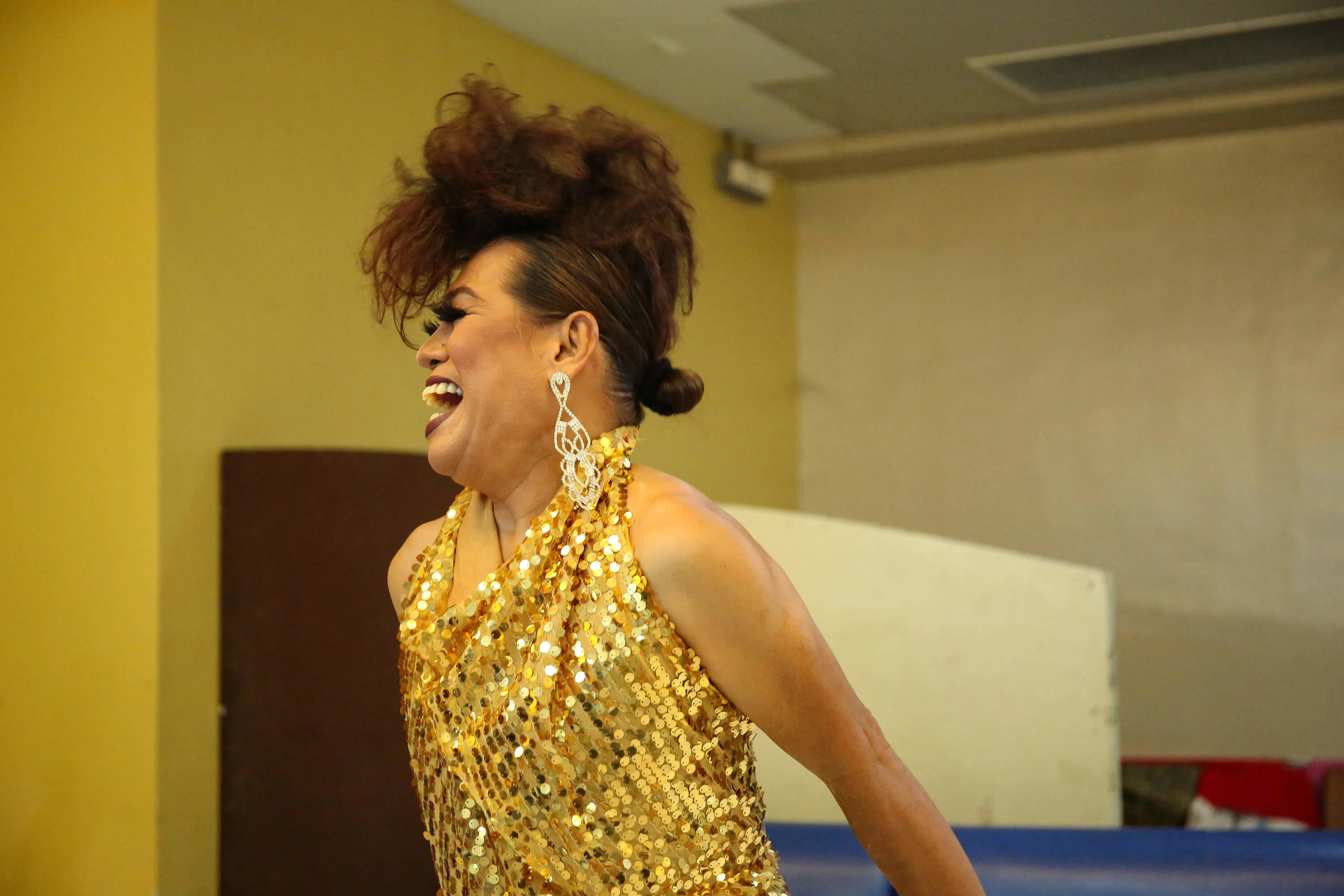

The Golden Gays is my second family. I am also still in touch with my own family; we try to communicate weekly, so I’m lucky I have two families. I live alone, but you’re never really alone because you have many friends in the Golden Gays.
My only wish is to be accepted by society. This is what is being fought for everywhere. We should all be equal.
In our industry, as long as you hear the applause, no-one gets old. As long as the spotlight exists, we will continue. The show must go on. An entertainer never ages.
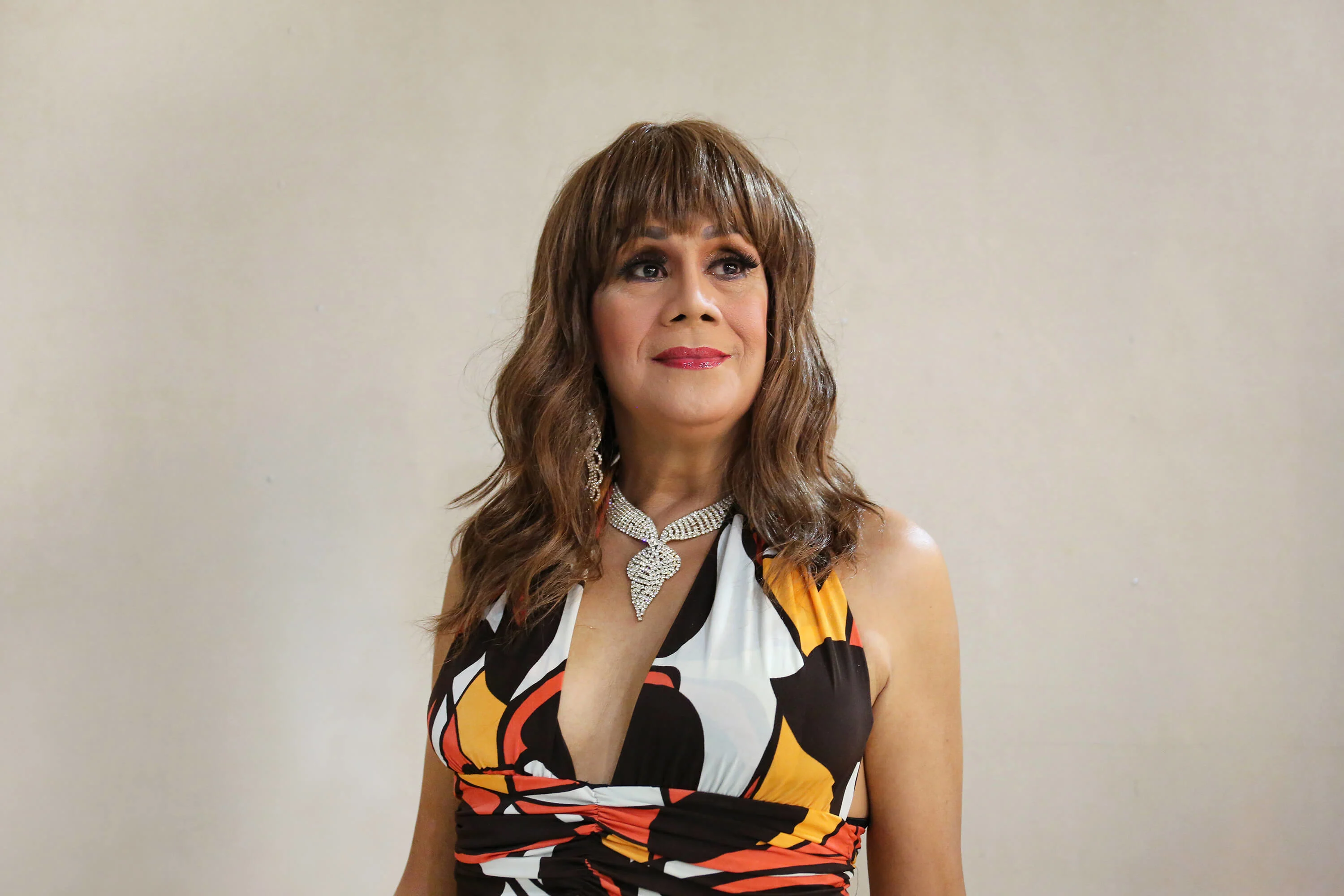
Flor “Amparo” Bien
Flor “Amparo” Bien Jr., 57, worked as an entertainer in Japan and won many gay beauty pageants, including the Miss Gay Philippines title – “My hair was long and I looked like a goddess or in Filipino, a diyosa.”
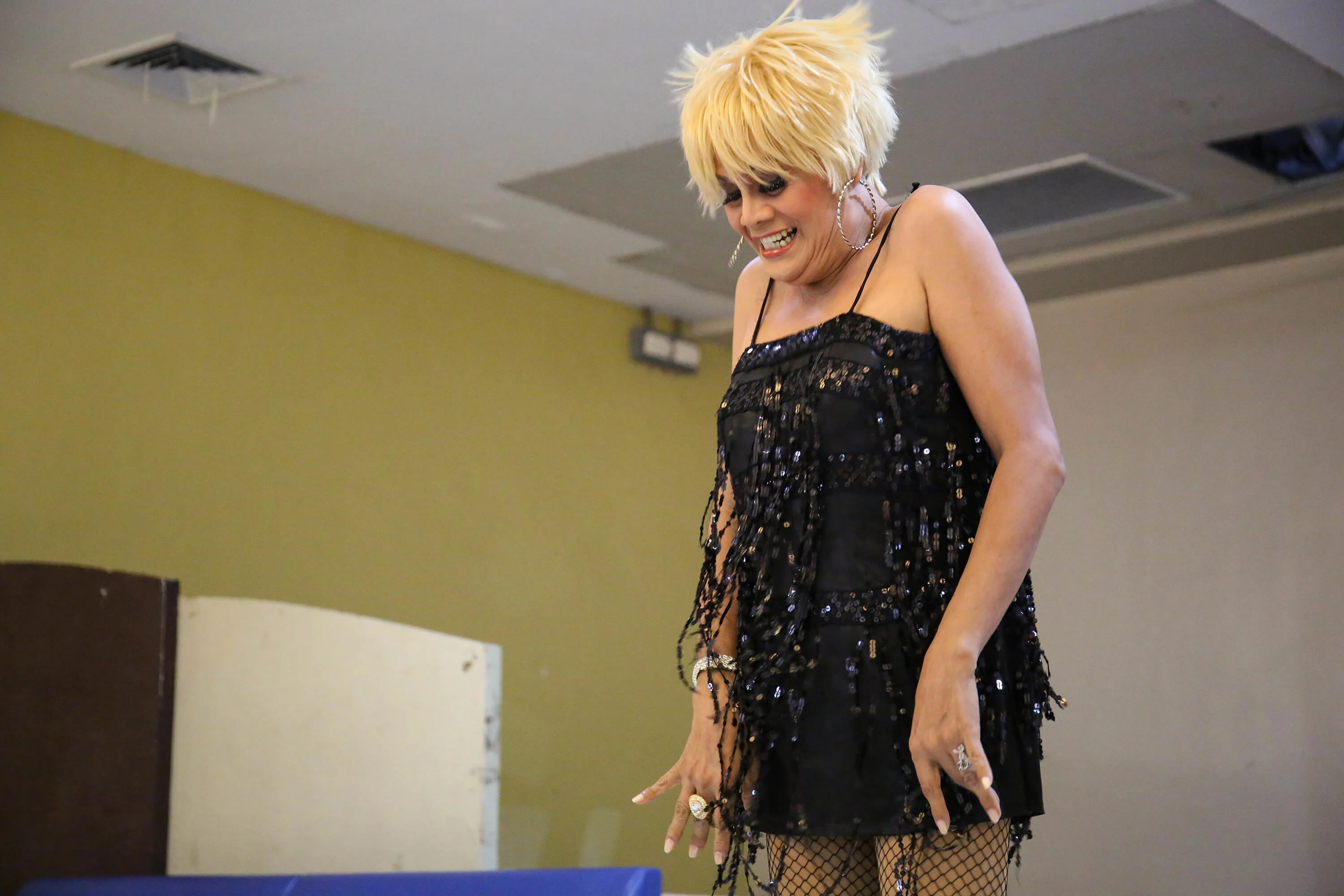
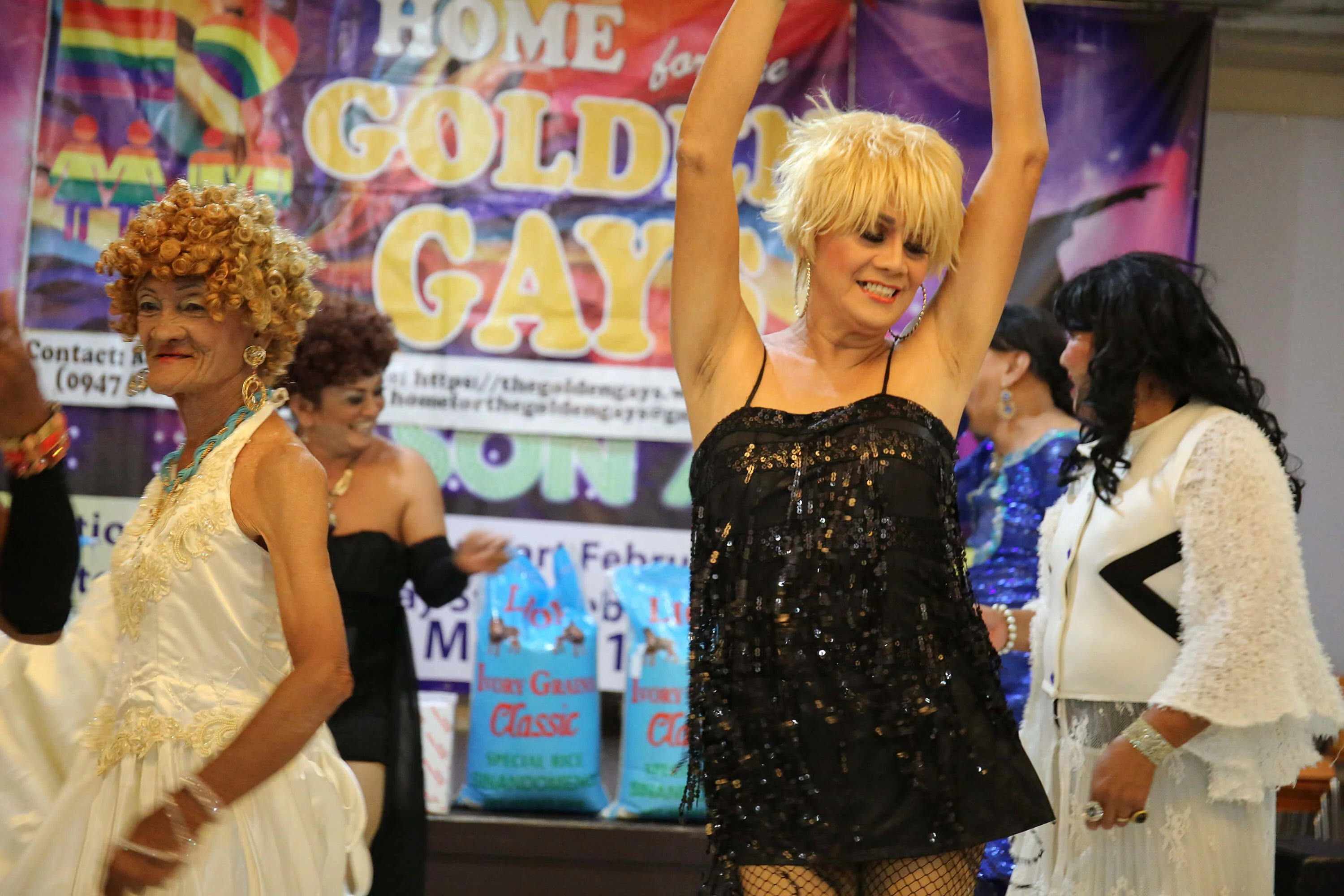
In my younger years, my family knew I was gay because I was already effeminate. It’s a good feeling for me – to be able to be open with them, for them to know.
I make sure I use my gayness in a good way, echoing the advice from my mother. We have this saying that kindness is a language. I believe that kindness should be a lifestyle. Try to show that you are kind, even when you don’t have anything to offer financially.
I am honored to be a part of the Golden Gays because I need to accept that I’m growing old. When I dress up, I feel like a queen. I want to show everyone that this is me; this is who I am. I feel so confident because I feel like a woman from the bottom of my heart.

Jerry “Tricia” Javier
Jerry “Tricia” Javier, 45, is a beautician and make-up artist who works with dancers at a club and goes door-to-door.
I’m the Golden Gays fashionista. That’s what they call me. I’m good with accessories and fashion sense. I just enjoy our get-togethers and events, it doesn’t matter if I win or lose. The Golden Gays has kept me busy and active and they surround me with people so I was not left isolated.

Federico “Rikka” Ramasamy, 62, has worked as a porter, a paper boy and as domestic help for a Chinese family. He was thrown out of home for being gay and spent seven years living at a local Cultural Center before meeting Golden Gays founder Justo Justo. He moved in with his mentor and cared for Justo up until his death in 2012.
During the 1960s, they hated seeing you walk like a gay and sound like a woman. This made you unworthy of being a son of God. It was strict and it was hard to be yourself and move freely.
Growing up, my mom had always been angry with gays and she got angrier when she saw how I was walking. I was in high school when I found myself a little support system with my gay friends. Sometimes, I’d skip school because I was roaming around in search of handsome guys and forgetting my studies. My mother knew because my sister ratted me out. She slapped me hard on both cheeks and ordered me to leave the house after throwing out all my clothes.
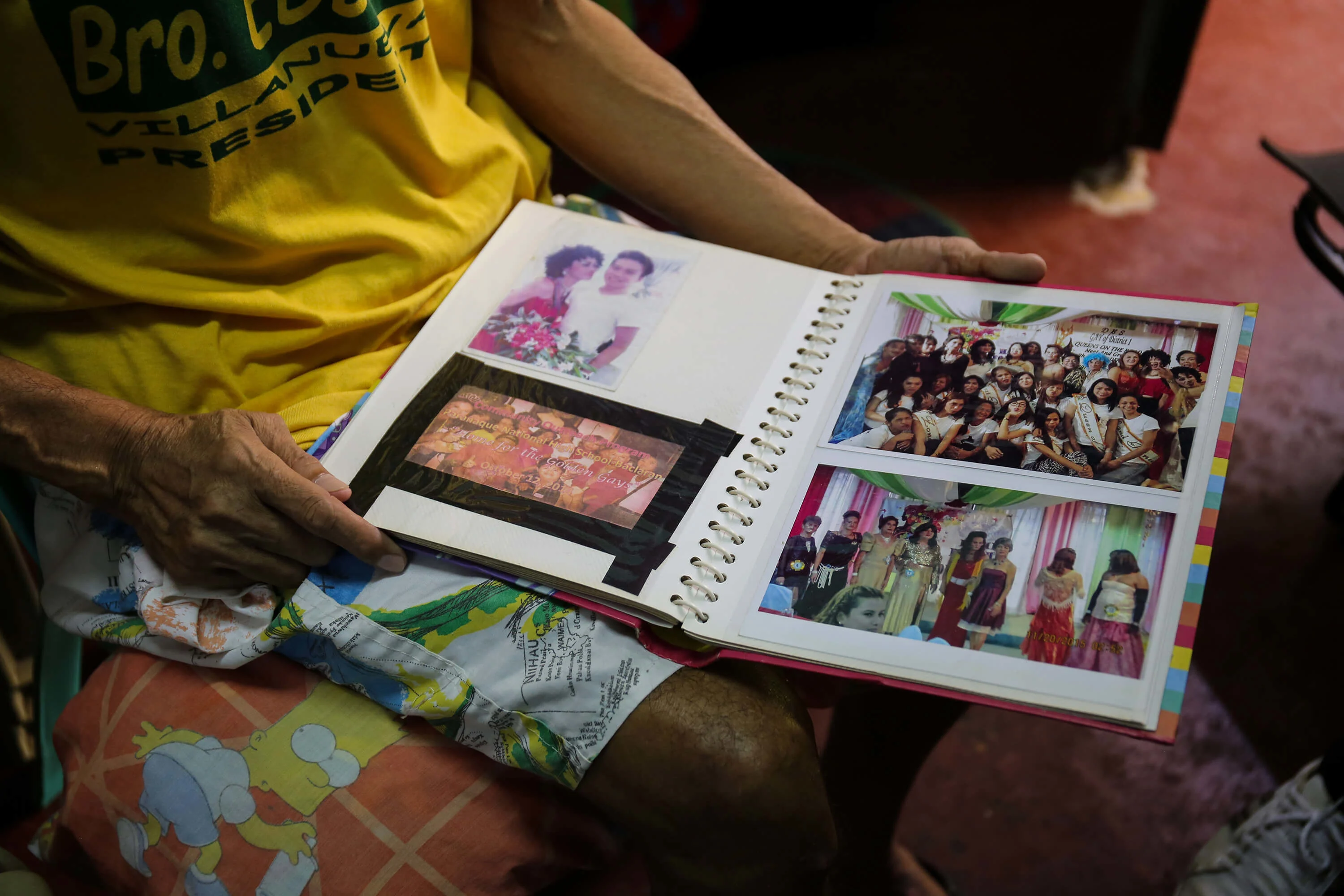
Justo Justo brought me in, gave me clothes, fed me and baptized me as Rikka. While I was living with Justo, I won my first pageant. I was very sexy and beautiful. It was the first time I felt beautiful.
Whenever there are pride marches here, we want to be the ones leading the parade. The community has been crying out for equality, but their pleas are ignored because the government sees them as children. So we thought, why not have The Golden Gays as front liners because we’ll shout for it even more? The magnitude will be felt because these have been our cries since we were young! We’re old and have matured, and we’re still aiming for equality.
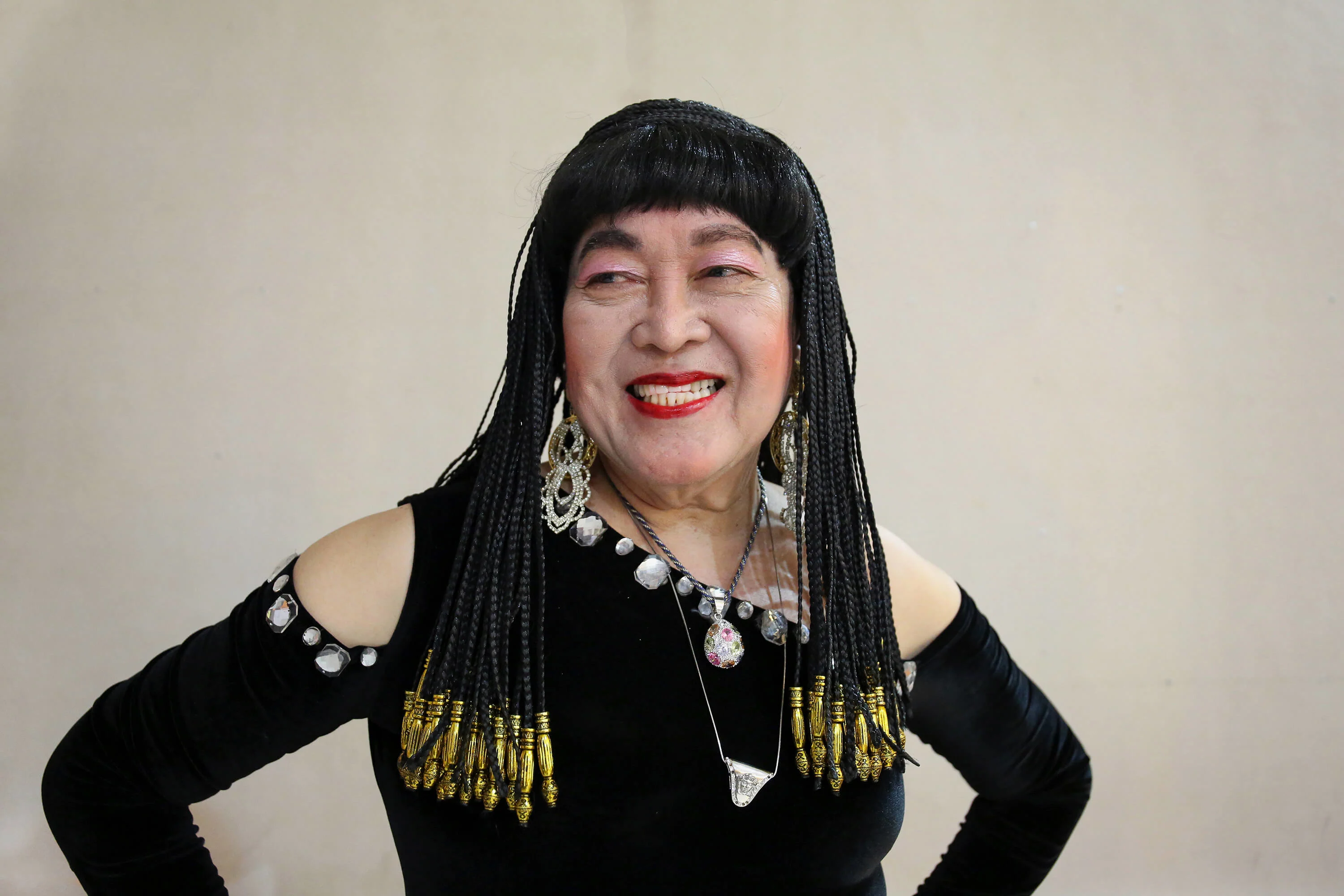
Ramon “Monique de la Rue”
Ramon “Monique de la Rue”, 68, was a close friend of Justo Justo and now leads the organization he founded. He worked in the Middle East for big multinational companies, which he enjoyed a lot – “I was so young and fresh. Those were my golden years.” He came back to the Philippines in 2001 and after he retired in 2009, he started working with Justo again.
During the 1960s and 70s, it was a closed society for the LGBTQI+ people in the Philippines. Now you can see a transgender person in places like Starbucks.
There’s still discrimination but we are making some headway in the workplace. Acceptance from one’s family is still one of the biggest struggles as an elderly gay man in the Philippines. There are also strict Catholics who cannot fathom the depth of the LGBTQI+ community. Even though this is a modern world, traditional beliefs are still deeply embedded in them.
When I retired, I agreed to assist Justo and try to improve the Golden Gays organization. I am computer literate, I have a good background in communications; in short, I am capable of running the show.
We are butterflies in disguise.
At that time, I was handling all comms because he needed to rest. When he died, I took the reins of leadership from him. I told him, yes, I will continue your legacy, but you have to consider we don’t have much. The support comes from NGOs, private individuals, and corporations, but there is no regular funding. So we have to level-up our performances so that sponsors and benefactors come back. If they enjoy our shows and performances, they call us again.
And we bring the joy of the event. We do some live singing, and we have very good dancers. We don’t do rehearsals because it’s too tiring and time-consuming for the lolas. When we have these events, when we’re dressed up, it energizes our members. The ageing process stops. You forget all the problems. We are butterflies in disguise.
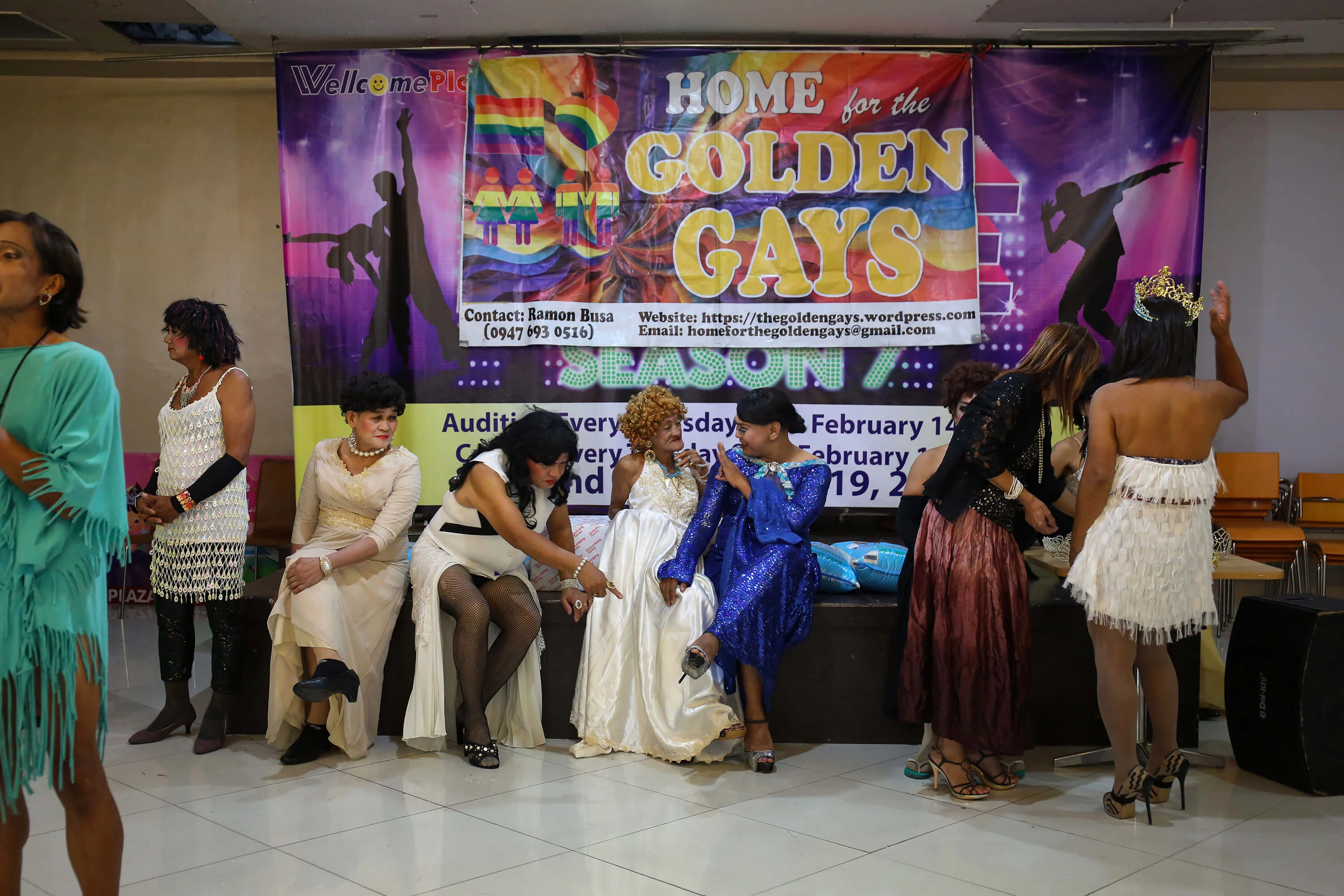
Our mission is to have a permanent residence because the community is getting bigger. I’ve been focused on finding a house for the last three years because we need a home for us all to stay together safely . We have people from the LGBTQI+ community asking what’s next. I tell them to support us, because the next generation will be staying in this house after we leave.
Gays are survivors. We are resilient. And since we’re used to living alone, we’ve grown tougher in our outlook on life.
Death is a foreign word to us. We’re not afraid of death. We’re strong and we keep on moving forward. We want to be able to live together because we want to help each other and it’s always best to stay together in one place. The more the merrier.
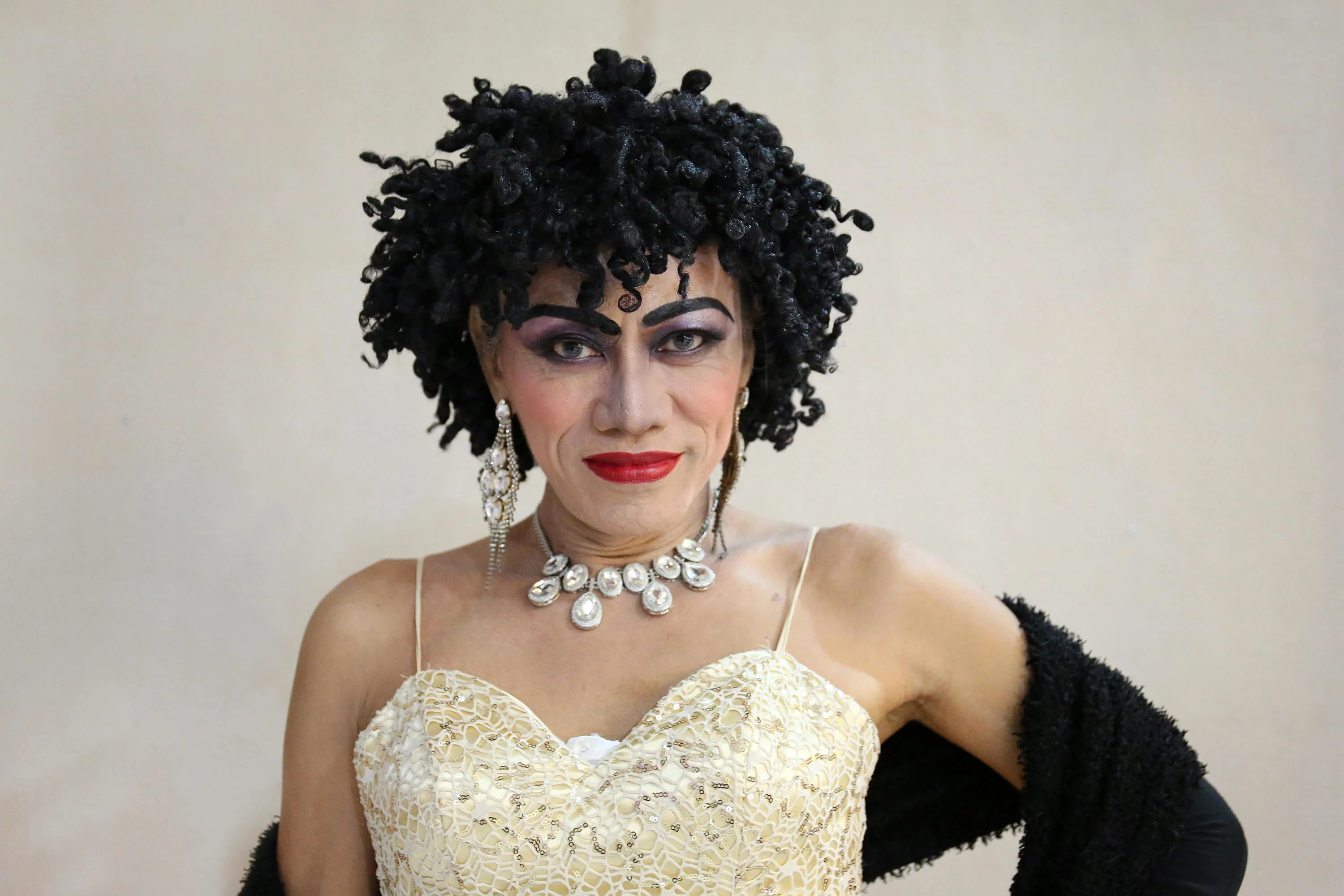
Reynaldo “Beyonce” Ravago
Reynaldo “Beyonce” Ravago, worked in a salon and as a dancer, choreographer and make-up artist. He had a conservative upbringing where being gay was seen as being “abnormal and an embarrassment.”
I was born this way. My father and brothers tried to change me. I was receiving punches from them to stop me expressing myself... But I just cannot be a man. I know my physical attributes are of a man, but my heart and soul say I’m a woman.
I started having gay friends when I was in the third grade. I would go to their houses for “school projects” but we would just flirt. I remember, to attract the attention of our crushes, we joined the volleyball team so we could wear skimpy shorts.
I want to prove to my parents that being gay doesn’t make you less of a person. I can be normal and gay.
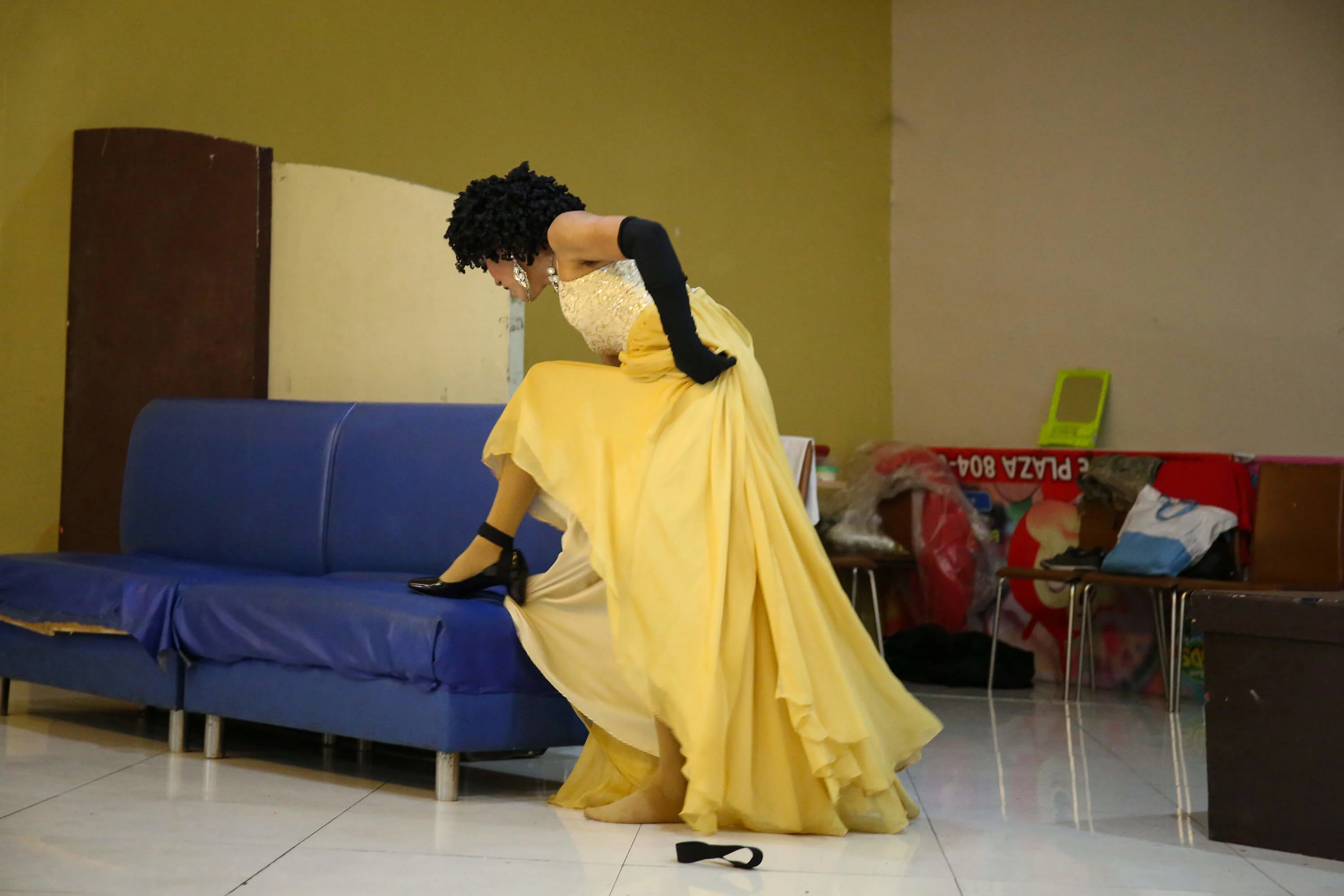
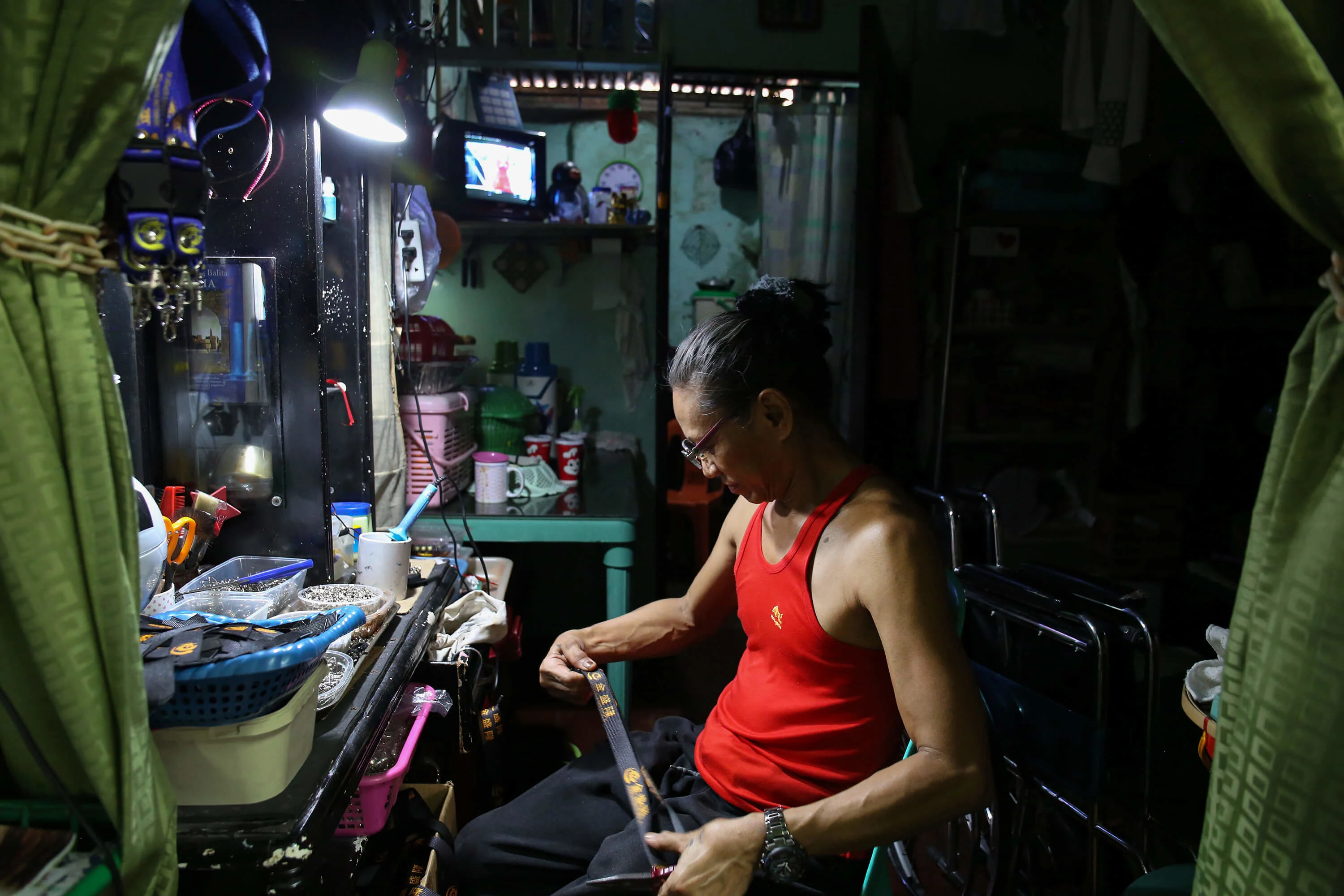
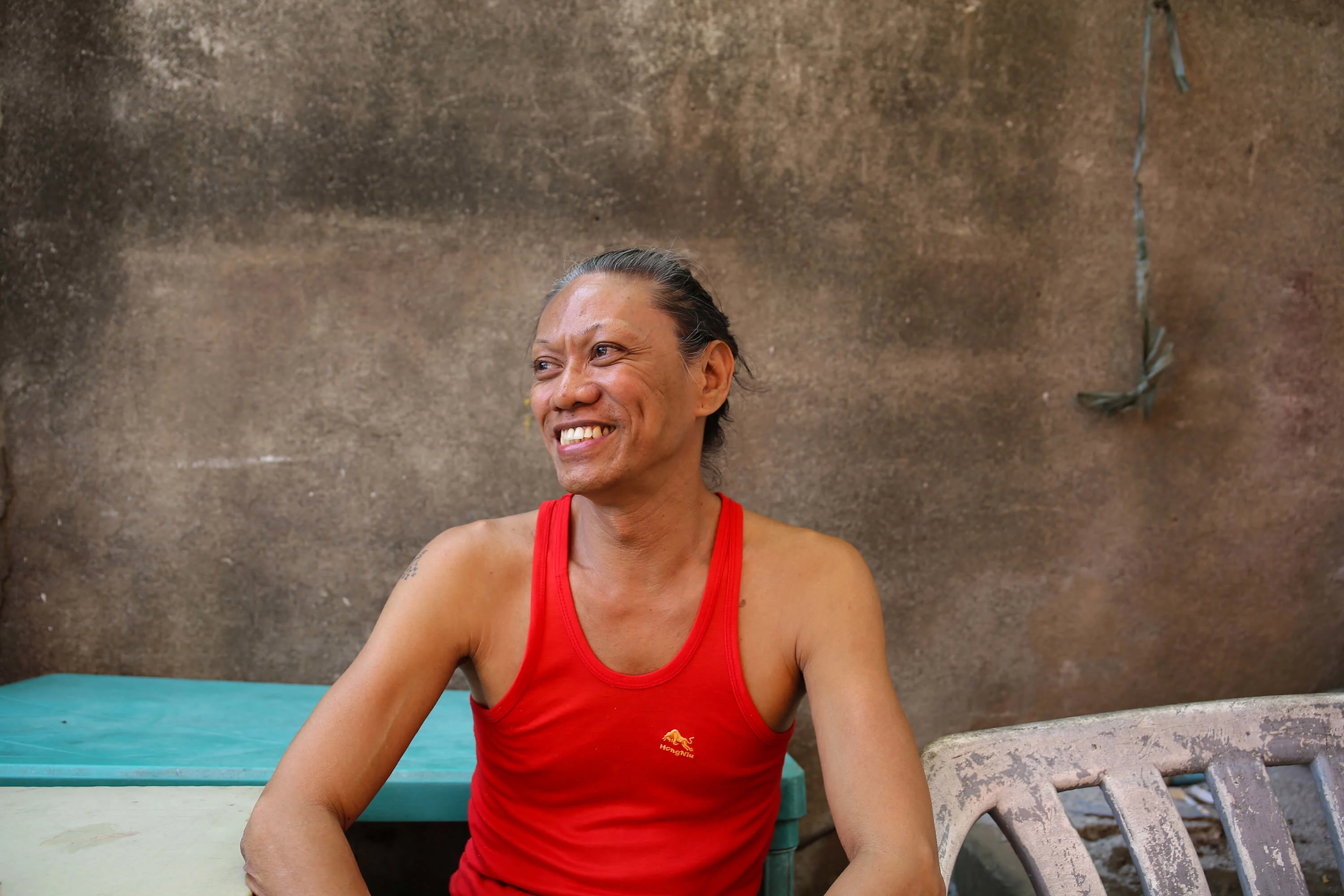
I was 54 when I auditioned to join the Golden Gays. An audition was not really required, but it was my way of being accepted. The Golden Gays made me realize I’m not yet outdated in the entertainment scene. I’m not one for competitions, but I still always win.
I try not to be superficial, it’s important to go deeper and care about people. I joined the Golden Gays, not for what they can do for me, but for what I can do for them.

